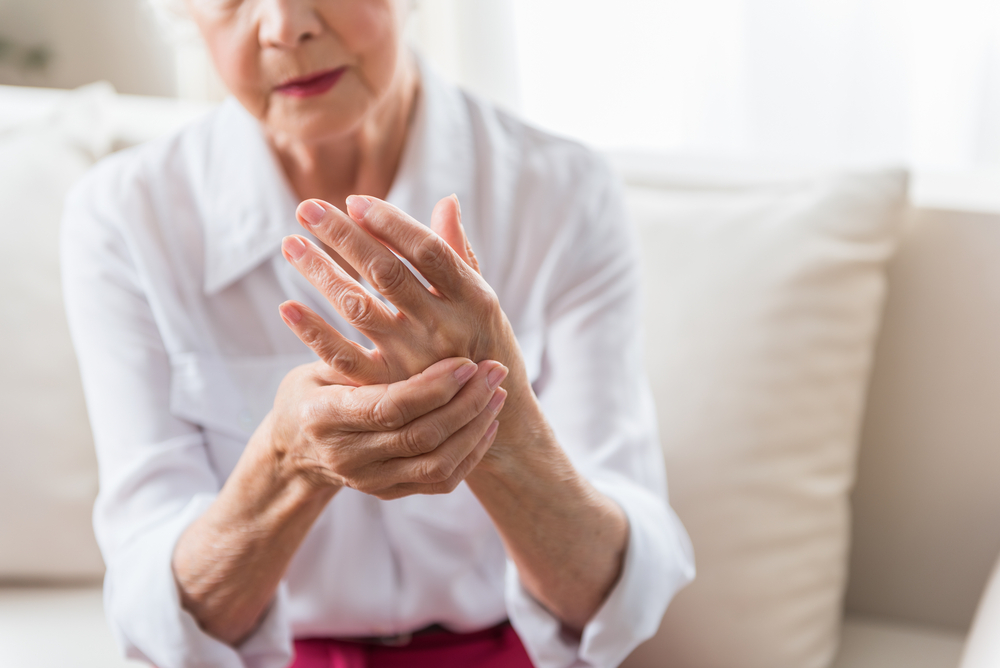Rheumatoid arthritis is a real pain — literally. This painful condition usually hits seniors over 60, but it can also affect younger people in their 30s and 40s. The primary symptom is aches in the bones, and it often can get worse over time. Unfortunately there is no total cure. The good news is that there are ways to make the symptoms more manageable and less severe. All it takes is a little bit of research and knowledge about the best modern treatments.

What Is Rheumatoid Arthritis?
Rheumatoid arthritis is not technically the awful feeling in your joints that makes you feel like a creaky dinosaur: it’s actually an autoimmune problem that causes these uncomfortable symptoms.¹ The wires get crossed somehow in your immune responses and attack your own body. It’s awful, but it can be reassuring to know that sufferers are not alone. In fact, more than 1.3 million Americans suffer from rheumatoid arthritis. It is not an exaggeration to say that rheumatoid arthritis is a major—and painful—problem in America today.² The disorder causes your body’s immune system to attack the synovial liquid in your joints that usually keeps them well-lubricated and this, in turn, makes you feel creaky and full of discomfort.
How To Know If You Have Rheumatoid Arthritis
Joint pain, particularly in the knees, feet, and hands are all classic symptoms of rheumatoid arthritis. It’s also common to experience a hot sensation in the muscles. It can interrupt many daily activities and necessities from going for a walk to driving. Joint issues can make even simple tasks feel like climbing Mount Everest. If you’re experiencing these symptoms, the first step is to take a break from what you’re doing and rest your joints, but if this does not help then it’s time to go to a physician who can find out what is wrong. Women are more often affected than men.
How To Treat Rheumatoid Arthritis
Taking a common nonsteroidal anti-inflammatory (NSAID) drug like aspirin or ibuprofen is often recommended, although this does not always result in major improvement and may not suit everyone. If pain and inflammation is getting worse your physician may prescribe you corticosteroids or targeted rheumatoid arthritis medicines such as biologics. Disease-modifying anti-rheumatic drugs (DMARDS) can also be quite effective, and may be taken as injections, pills or infusions.
More Treatment Options
It may also be worth considering natural remedies like fish oil, probiotics, turmeric and curcumin, which have had positive results in some medical studies.³ Applying hot and cold compresses can also have beneficial effects on rheumatoid arthritis over time and some patients have been significantly helped by doing so. In addition, it is also well advised to make overall changes to your diet if you have been diagnosed with rheumatoid arthritis. Vegetable-focused diets have been proven highly-helpful in some cases, especially with a focus on whole grains, nuts and seeds.
The Positive Effects Of Stretching
As basic as it may be, stretching and easygoing exercises can also be a good way to lessen the symptoms of rheumatoid arthritis. Swimming and riding bikes is another good option. While there is not an overall cure for rheumatoid arthritis, there are many ways to make it more manageable and to lessen the symptoms. It can become difficult and uncomfortable to stretch and exercise because of the rheumatoid arthritis, but the more you find a way to do what little you can and stay active the better the symptoms are likely to get.
Keep Educated
Finally, it is important to keep yourself as educated as possible about the latest treatments and options for managing symptoms. Evolving technology is making it easier and easier for us to manage all kinds of health conditions. Being as knowledgeable as you can about the latest treatment options can help find new ways to reduce pain and stay youthful.
[1] https://www.healthline.com/health/what-is-autoimmune-arthritis
[2] https://www.healthline.com/health/rheumatoid-arthritis/facts-statistics-infographic
[3] https://www.medicalnewstoday.com/articles/315492.php#diet


